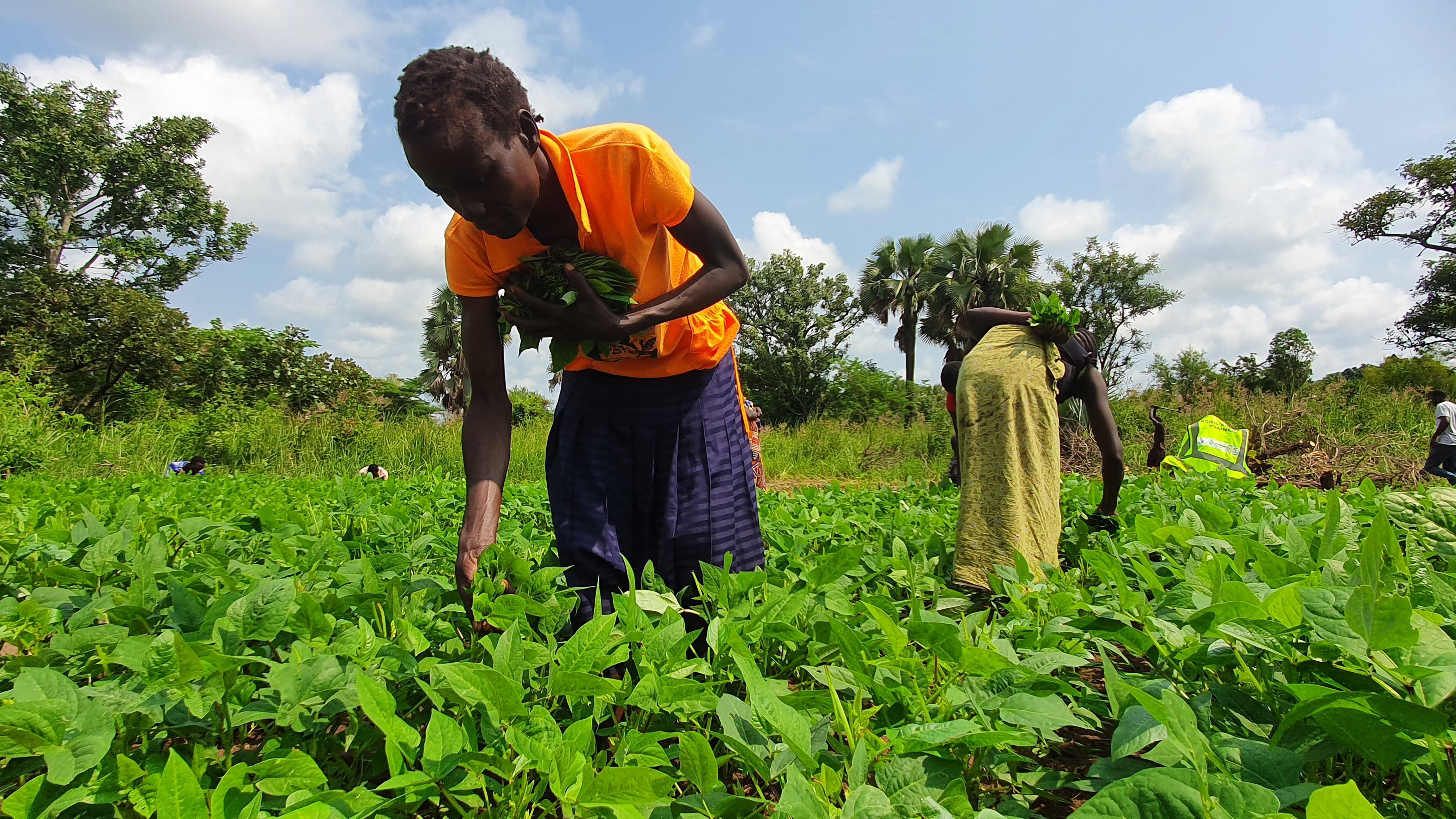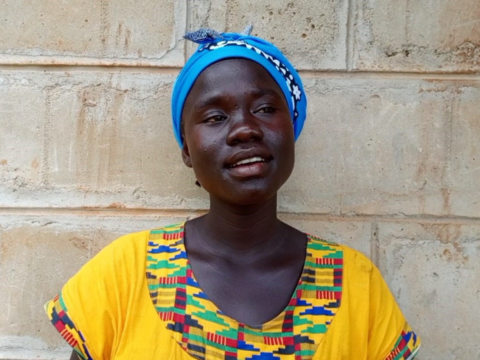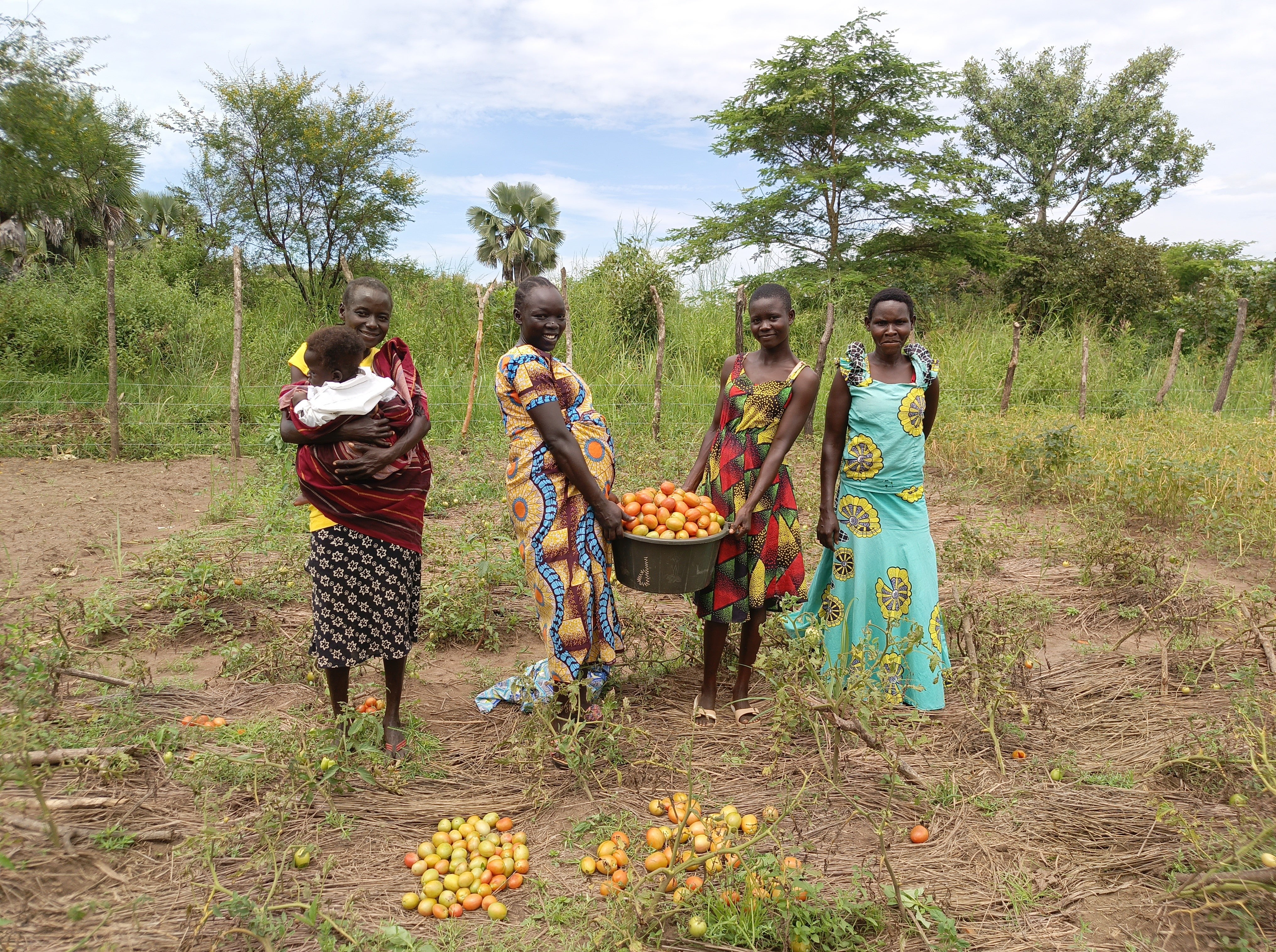South Sudan: Women Weathering Climate Impact and Increased Violence
Date:

In Mugwo Payam, Yei River County, this year’s heavy rainfall has washed away crops and spurred the growth of tall grasses on Winny's family farm, creating an extra hazard. As she prepares for the day ahead, Winny knows she must be cautious.
“The tall grass hides men who rob and rape women along the roads,” she explains.
Increased Gender-Based Violence
South Sudan, with a population of 11.7 million,[1] relies heavily on the Nile for water and its economy. With 95% of the population depending on farming, fishing or herding,[2] a stable water supply and an effective drainage system are essential. However, years of political instability, unpredictable weather and widespread endemics have created severe food insecurity that in turn has exacerbated violence against women and girls.
Deforestation has forced women to travel farther for firewood and water, exposing them to increased violence. “Some women are beaten or raped by their husbands, who accuse them of meeting other men in the bushes,” Winny explains.
Meanwhile, droughts have driven girls out of school to help their mothers search for food and water, again adding to the risks they face, says Winny.
Women for Women International initiative

Winny is one of the first 247 women participating in a programme led by Women for Women International (WfWI), in partnership with Women for Change and the South Sudan Law Society, to address violence against women and girls in the volatile context of South Sudan. Funded by the UN Trust Fund to End Violence against Women, during the first year, the initiative has already engaged nearly 500 community members, including displaced persons, in community-led activities to help women adapt to climate impacts and protect their rights.
In its first year, WfWI has enrolled women in the lowest income groups including internally displaced women and those living with disabilities, in the Stronger Women, Stronger Nation (SWSN) programme, designed to promote economic self-sufficiency and social change by providing training, resources and support. So far, SWSN has empowered participants through:
- Informational training: critical modules that include the value of women’s work, health education, rights and decision making, financial literacy which encompasses benefits of saving, and group formation, including how to from and run a Village Savings and Loan Association (VSLA).
- Skill-building: numeracy, business skills, and a chosen vocational skill. Vocational training has focused on agriculture and bakery as the most economically viable vocations for women in Mugwo.
- Resource provision: includes monthly cash stipends, resources to pursue chosen vocations, referrals to health and legal services, and access to savings groups.
- Connections to networks: shared support through local women’s networks, global supporters, and fostering connections with other women, including former graduates from the programme.
Additionally, a Men’s Engagement Programme for the husbands and male relatives of the women provides knowledge about women’s rights, power dynamics in the home, domestic violence and how to co-manage household finances. Among the first 250 men to enroll were 16 community and 13 religious leaders.
Adapting to Climate Change
Referring to the impact of the climate crisis, Marianne Kajokaya, WfWI-South Sudan Country Director, said: “One of the biggest challenges in implementing our programme is simply getting women to our trainings.”
In areas like Yei, Juba and Terekeka counties where WfWI operates, communities face floods that regularly destroy roads and bridges and unpredictable weather that can displace them from their homes, as well as food scarcity which means that they cannot afford to miss work to attend training.
In response to these challenges, WfWI has:
- taken training and services directly to the communities;
- provided weather-resistant equipment for staff and trainers;
- planted trees near training centres for easier access to firewood; and
- promoted beneficial agricultural practices such as organic manure, crop rotation, and kitchen gardening.

Intersection of Poverty, Violence and Climate Crisis
Environmental disasters and degradation have increased the burdens on women at home leading to declining literacy rates among women and girls while political uncertainty have all increased rates of intimate partner violence, child marriage and forced marriage.
“The communities most vulnerable to climate change, who have contributed the least to the crisis, are often the hardest hit by conflict and economic instability,” shared Marianne. “This combination of risk and vulnerability threatens not only livelihoods but also the lives of women, who bear the brunt of these challenges.”
Despite the many complex challenges in South Sudan, WfWI and its partners continue their work alongside women to help them find safety and empowerment in their daily lives.
[1] https://data.who.int/countries/728
[2] https://www.fao.org/south-sudan/fao-in-south-sudan/south-sudan-at-a-glance/ar/